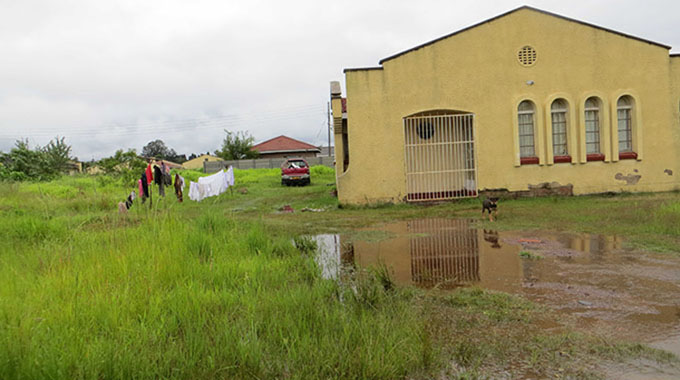Let’s do more to protect wetlands, correct misdeeds

Christopher Makaza
Correspondent
On February 2, Zimbabwe joined the rest of the world in celebrating World Wetlands Day, which aims to raise global awareness about the vital role of wetlands for people and the planet.
The day also marks the date of the adoption of the Convention on wetlands on February 2, 1971, in Iranian city of Ramsar.
But for Zimbabwe, the celebrations seem meaningless as urban councils are destroying wetlands, breaching local laws, including the 2006 Environmental Management Act and the Environmental Assessment and Ecosystem Protection Regulations of 2017, which provides for the protection of wetlands.
The urban councils are illegally allocating stands on these wetlands which can only be attributed to ignorance and greed.
According to Section 2 of the Environmental Management Act, wetlands are defined as “Areas of marsh, fen, peat-land or water, whether natural or artificial, permanent or temporary with water that is static or flowing, fresh, brackish or salt, including riparian land adjacent.”
Wetlands provide numerous environmental, economic and social services such as pollutant removal, wildlife habitats and groundwater recharge, hence should be jealously protected, is we are going to avoid a dismal future.
For a long time, the country has been able to preserve and taking good care of its wetlands in urban areas before the advent of greedy council officials and land barons especially in Harare, who started illegally selling stands on the wetlands with impunity.
The careless abuse of wetlands then spread to other towns across the country and if not well managed it will reach toxic levels and become the undoing of these areas.
In November 2019, Harare City Council announced plans to offer 3 470 housing stands to cover up for salary arrears for its workers dating back to 2017.
The said stands were reportedly on wetlands.
Responsible residents from Mabvuku and Tafara, then wrote to the Harare City Council and the Provincial Minister for Harare, Senator Oliver Chidawu seeking to stop the move arguing that allocation of the stands on wetlands will result in further shortage of water for residents of Mabvuku and Tafara who have gone for several years without receiving water.
The issue is reportedly yet to be resolved.
Harare Wetlands Trust (HWT) also raised the same issue and engaged Environmental Management Agency (EMA).
Recently, Budiriro Extension residents were left counting their losses following heavy rains that left their houses flooded.
The houses are reportedly built on wetlands, an issue which was confirmed by the residents. Some of the houses were built on the water course.
A few weeks ago, Chitungwiza residents came out against the municipality for its allocation of stands in wetlands which they say has resulted in the increased water shortages in the town.
The residents complain that they have been experiencing increased water shortage ever since council embarked on the practice, which has seen houses in various wetlands dotted around the town.
Only to confirm the critical nature of the problem, families in Chitungwiza, this past week woke up to submerged houses as rains pounded the dormitory town.
Government’s efforts in fighting corruption and land scams, which is leading to invasion of wetlands is highly commendable and tough laws on wetlands that Government is mooting will go a long way addressing the incessant destruction of same.
Prosecution of the culprits will also curtail the vice. Several MDC-Alliance officials, including suspended Harare Mayor Jacob Mafume, have been arrested over illegal land deals.
Recently, a Chitungwiza-based land baron, Fredrick Mabamba was arrested over allegations of illegally parcelling out more than 5 000 residential stands to people who have been affected by floods in Chitungwiza during the time he was deputy mayor of the town.
Destruction of wetlands will not only affect human beings, but also has adverse effects on species like birds, fish and insects that depends on these wetlands for survival.
The fact is that tampering with wetlands will also create problems associated with climate change.
Cities are fast becoming arid regions and Government’s timely intervention to address the issue, will halt wetlands becoming extinct.








Comments